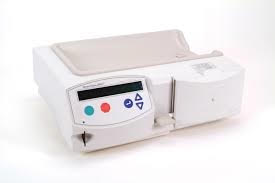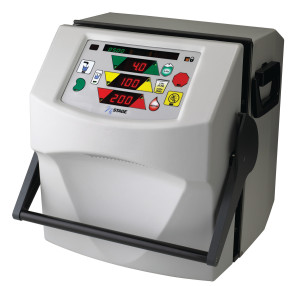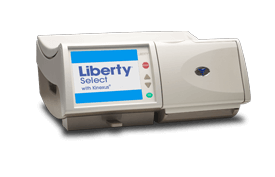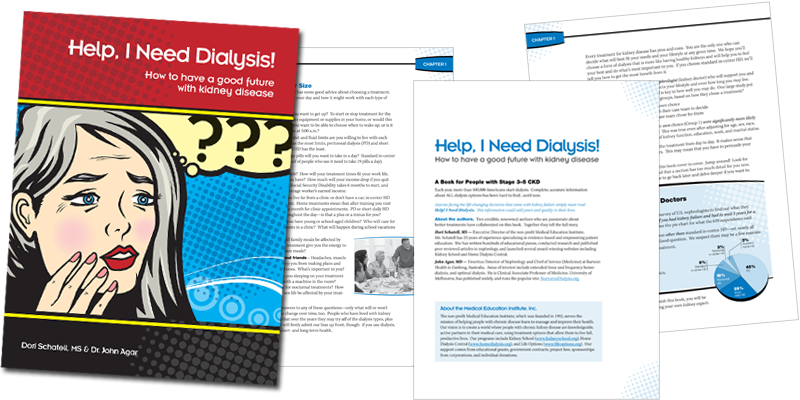Dialysis Treatment Options
Dialysis
Dialysis is a treatment that replaces some of the work normally done by the kidneys. This includes balancing fluid, balancing electrolytes and removing waste products from your blood. Several dialysis treatment options are available for people with advanced chronic kidney failure, also called end stage renal disease (ESRD) or Stage 5 Chronic Kidney Disease (CKD).
Peritoneal Dialysis
Peritoneal dialysis is a type of dialysis that uses your peritoneal membrane as a filter to clean your blood. The peritoneal membrane is a natural filter that surrounds your abdominal cavity. With this type of dialysis, sterile dialysis solution enters your abdominal cavity via a peritoneal catheter. Waste products and extra fluid collect in this fluid and then are discarded. The types of peritoneal dialysis are listed below:
- CAPD (Continuous Ambulatory Peritoneal Dialysis): This type of dialysis is done at home and requires four manual exchanges per day while you are awake. The exchange process consists of draining out the fluid containing the waste products and filling back up with a new dialysis solution. This process takes approximately 30 minutes per exchange.
- APD (Automated Peritoneal Dialysis): This type of dialysis is done at home while you sleep using a dialysis machine called a cycler. The cycler weighs 25lbs and sits on a bedside table. The cycler completes several exchanges over several hours while you sleep.
Hemodialysis
Hemodialysis is a type of dialysis that cleans your blood using an artificial filter on a dialysis machine. A small amount of your blood leaves your body and runs through the filter on the dialysis machine, is cleaned, and then returned to your body.
- Traditional In Center Hemodialysis: This type of dialysis is performed in a dialysis facility three times per week. The patient is on the dialysis machine for three to four hours with 15-20 minutes required for set-up and take-off procedures.
- Home Hemodialysis: This type of dialysis is performed by the patient and a partner in the home. This treatment is done three to six days per week. Each treatment takes two to three hours depending on the patient’s size and health conditions.
- Nocturnal Hemodialysis: This type of dialysis can be performed overnight by the patient and a care partner in the home three or more times per week. It can also be done at an in-center hemodialysis clinic, three times per week. Each treatment is done at night and takes six to eight hours.
Resource: “Help, I Need Dialysis!”
How to Have a Good Future with Kidney Disease
Next Step
Feel like you have more questions now than answers? Don’t worry! The nurses at HDT can answer your questions and provide you with the information you need to make an informed decision about what is right for you. Remember, the choice is yours. Contact us for a free, 1-on-1 consultation with a nurse who can help you explore your dialysis options and make the decision that is best for you.





